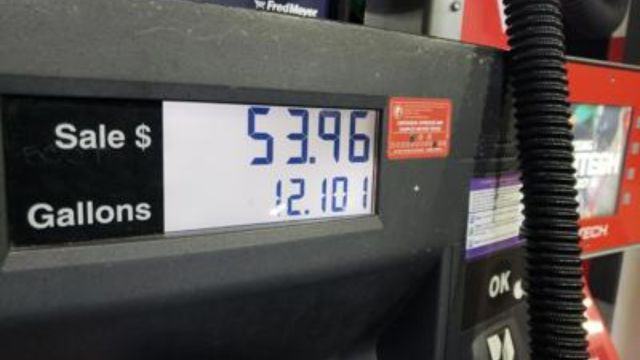Arizona And Nevada Brace For Potential Gas Price Hikes Amid California’s Refinery Profit Cap Discussion
Central Square – Gas prices in Arizona and Nevada, which depend on California gas, may increase as the California Energy Commission considers enacting a rule that would place profit limitations on the state’s nine surviving refineries, which are the only ones manufacturing the state’s unique gas formulation.
Potential penalties and maximum refinery margins might potentially raise retail costs for customers in Arizona, Nevada, and California.
Representative Justin Wilmeth, a Republican from Phoenix, stated at the California Senate committee hearing that oversaw the CEC’s passage of a refinery profit cap that “it may also cause California refineries to close prematurely.” “These choices will have negative effects on both Arizona and Nevada.”
The CEC will investigate establishing a maximum refinery profit margin in order to “reduce price spikes and stabilize the gasoline fuel supply market,” according to California SB-2, which was passed in 2023.
The usage of gasoline unique to California that cannot be imported from refineries that do not create its formulation and the state’s highest gas taxes and fees, which stand at $1.62 per gallon, are some of the reasons why California’s gas costs are $1.73 higher than the national average. Ten of the fourteen oil refineries that are currently in operation in California make gasoline.

Due to the low number of refineries, the ones that remain in California run at 99.7% capacity, thus any drop in output due to maintenance causes significant supply shocks and price rises. California has imported fuel from Mexico, Europe, and Asia in the event of a serious gasoline crisis.
SEE MORE – D-25 State Senate Race Sees Two Johnston Men As Contenders
Refiners in California have little motivation to invest in expanding or modernizing their facilities because the state is phase-out of fossil fuels, including the production of fossil fuels.
Consumer Watchdog claims that this unfairly disadvantages the poorest workers in California, which supports profit caps.
“During the hearing, Kim Stone from Consumer Watchdog stated that at $4 per gallon, one-nine percent of an annual minimum wage salary is spent on gas; at $5 per gallon, one-eleven percent is spent on gas; and at $6 per gallon, thirteen percent is spent on gas.”
“A maximum margin is primarily beneficial to low-income individuals and families due to its potential to mitigate price spikes.”
While manufacturers acknowledge that the state’s high prices for refined fossil fuel products are an issue, they stressed that increasing refinery capacity and the supply of fossil fuels would benefit businesses and consumers more than imposing a refinery profit cap, which they claim would raise energy prices and jeopardize energy supplies.
By worsening the already scarce supply of in-state gasoline, such policies would probably harm Californians.
On behalf of the California Manufacturers and Technology Association, Dean Teller stated that the implementation of such a system could result in fuel shortages that could have dire repercussions for a number of industries. It is imperative that the state address the current issues surrounding the supply of gasoline, such as the need for permits, production constraints, maritime imports, regulatory uncertainty that discourages investment, and geographic limitations.
Such actions worry us because they might discourage investment in California’s refining capacity and the closure of facilities that are currently operating.
It is anticipated that the CEC will decide by the end of 2024 whether or not to establish a profit cap.











